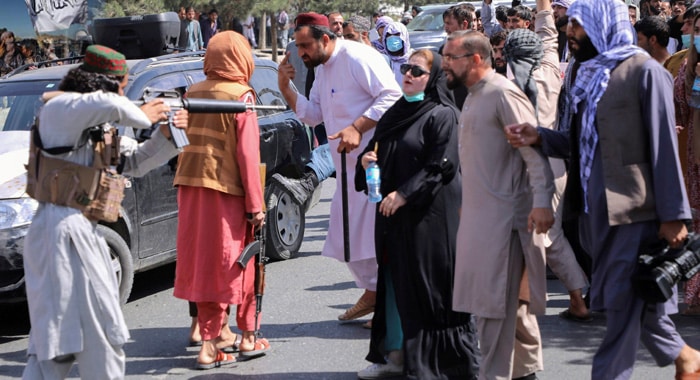Thousands of Afghan returnees, expelled from Iran under extreme summer conditions, are now stranded and bitterly disillusioned—with the very government that once urged them to come back home.
Over 1.4 million Afghans have returned from Iran in 2025 alone, many of them involuntarily. But instead of finding the promised support, they’ve been met with poverty, chaos, and a government unable—and unwilling—to absorb them.
> “They told us to come home. They said it was safe. But where is the home? Where is the safety?” asks Gul Ahmad, a returnee sleeping under plastic sheets at Islam Qala. “If they can’t help, why didn’t they speak to Iran and Pakistan for some flexibility?”
Empty Promises, No Infrastructure
In previous months, Taliban officials repeatedly called on Afghan migrants to return, boasting of “peace, stability, and opportunity.” But now, with no shelter, food, jobs, or even identification papers, the returnees feel betrayed.
Afghanistan’s de facto rulers had neither the infrastructure nor the planning to manage such a large influx. Instead, ad hoc handouts and vague gestures have replaced any real reintegration policy.
Even the Taliban’s announcement of 50 million Afghanis ($570,000) for Herat and Nimroz is seen as symbolic, not structural. The amount barely scratches the surface of what’s needed, and most aid efforts are being led by local communities and private citizens—not the state.
> “If it wasn’t for the people of Herat giving us water and bread, we would have died here,” says Fatima, a mother of four, recently deported from Iran.
Why Didn’t They Negotiate With Iran or Pakistan?
Returnees and critics alike are questioning why the Afghan government failed to negotiate with Iran or Pakistan to ensure safe, gradual, and humane returns.
> “The Taliban knew the economic reality,” says a Kabul-based analyst. “But inviting people back was a political show—an attempt to claim national unity and stability that doesn’t exist.”
Instead of diplomacy, the regime relied on slogans. And now, under the scorching sun of Islam Qala, those slogans lie in the dust alongside the exhausted, homeless families they lured back.
No International Support, No Internal Preparedness
International organizations cite funding shortfalls, while Islamic countries have largely remained silent. But Afghan citizens argue the real problem lies in Kabul’s performative governance and lack of planning.
> “They played politics with our lives,” says a young man from Ghazni. “We were safer in Iran—even as refugees.”
Conclusion: A Nation on Its Own—But Not By Choice
Once again, it’s the ordinary Afghan—poor, generous, and unrecognized—who steps up. Locals in Herat have opened their homes and wallets. Civil society groups have organized transport and aid. Meanwhile, the government that made the call for return is nowhere to be seen.
This isn’t just a humanitarian crisis. It’s a governance failure—and one that may soon deepen if Afghan leaders continue to substitute rhetoric for responsibility.





